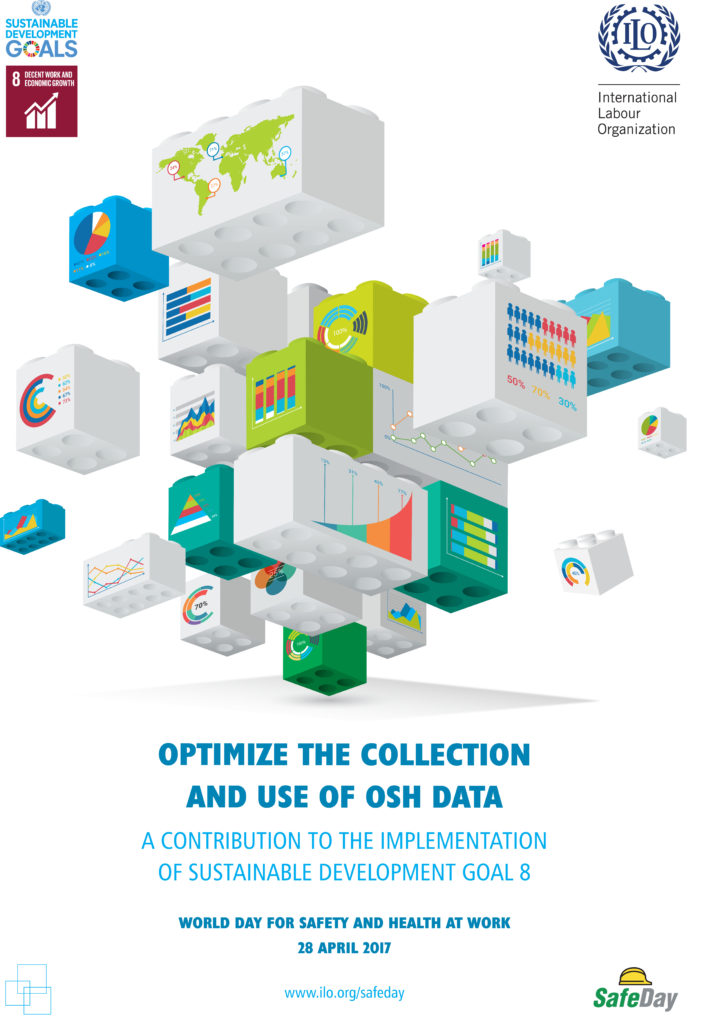The ILO’s campaign for the 2017 World Day for Safety and Health at Work focuses on the critical need for countries to improve their capacity to collect and utilize reliable occupational safety and health (OSH) data.

The United Nations 2030 Agenda for Sustainable Development adopted on September 25, 2015 encompasses a global plan of action with specific targets to end poverty, protect the planet, and ensure prosperity for all. With its adoption, the capacity to collect and utilize reliable OSH data has also become indispensable for countries to fulfil their commitment to implement and report on some of the agenda’s 17 sustainable development goals and their targets.
Sustainable Development Goal 8, in particular, provides for the promotion of “inclusive and sustainable economic growth, full and productive employment and decent work for all” and its Target 8.8 focuses on the “protection of labour rights and promotion of safe and secure working environments for all workers, including migrant workers, in particular women migrants, and those in precarious employment.” For Target 8.8 countries are asked to report on the following indicator: “Frequency rates of fatal and non-fatal occupational injuries, by sex and migrant status”.
Multiple ILO OSH conventions also require ratifying member States to establish mechanisms to collect and utilize reliable OSH data for prevention purposes. These ILO instruments recognize that the collection and utilization of reliable OSH data are indispensable for the detection of new hazards and emerging risks, the identification of hazardous sectors, the development of preventive measures, as well as the implementation of policies, systems and programmes at international, national and enterprise levels. OSH data provide the basis for setting priorities and measuring progress.
To support member States in the improvement of their capacity to collect and utilize reliable OSH data, the ILO produced a Toolbox with relevant resources and a set of fact sheets
The ILO welcomes the opportunity to work with member States, social partners and other interested parties to face this OSH data challenge and meet their commitment on the implementation of the objectives of the 2030 Sustainable Development Agenda and their obligations under ILO conventions.


